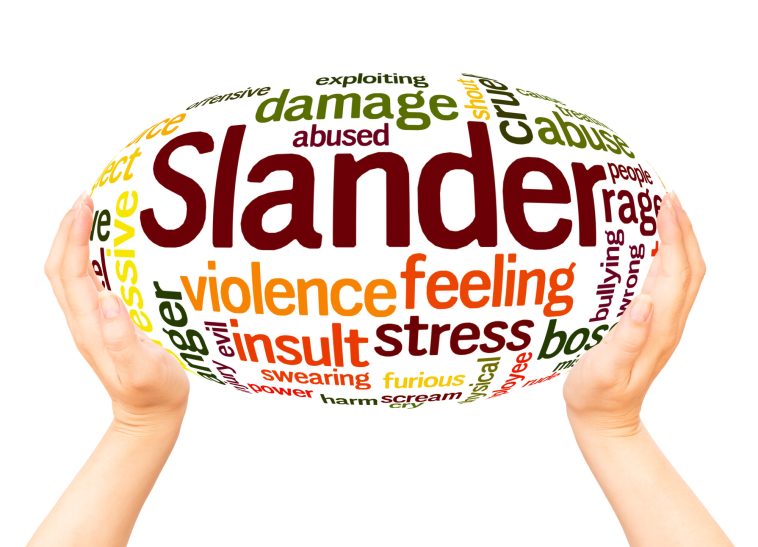Every year, state courts in the United States preside and decide over 100 million cases. Even more shocking is how that number only makes up 90% of all cases the U.S. justice system deals with.
Many of those legal matters are civil cases, which are non-criminal lawsuits. A perfect example is a case involving defamation of business. In this scenario, the victim’s reputation suffers due to another’s statements.
There are two types of defamatory statements: written (libel) and spoken (slander). If your business has become a victim of either or both, you can still take steps to protect its reputation.
We’ve shared tips to help your business recover if another party harms its reputation, so read on.
Avoid Retaliating
This is easier said than done, but in many cases, it’s best to keep quiet and remain calm. A good enough reason is that you or your business can be further devalued by how you react.
Suppose you reply immediately, and your response sounds angry and aggressive. The defamer can use this and say you’ve proven their point. They may even make you appear abusive.
In that scenario, others may think you deserve the statement, even if they’re lies. So, as much as possible, avoid responding until you’re more level-headed.
Confirm the Statements Are Defamatory
As soon as you’ve calmed down, capture evidence of the defamation. Review what’s in the written or verbal statement to confirm it’s false and harmful.
One of the most common ways business defamation occurs is through social media posts. With an estimated 246 million social media users in the U.S., it’s easy to see why.
An angry customer can post false and harmful statements against your business online. For example, they may rant about getting poor customer service when, in fact, they’re in the wrong.
Some may not even be actual customers who only post fake reviews or write-ups. They may only be doing this because your competitor paid them to.
A disgruntled employee (or a former one) can also post defamatory statements online. An example is sharing fake stories about how your firm delivers poor service but charges so much.
Take photos or screenshots of those online statements. You need these as evidence for a defamation claim or lawsuit.
Verbal statements are more challenging to prove, as you need a record or a witness who heard them. Unless you can come up with either, the situation becomes hearsay.
Consider Hiring a Reputation Defender
A reputation defender acts as a manager of your business’s web assets and presence. They can look after your online presence and remove unwanted information about it. The latter includes false, biased, and derogatory statements or reviews.
You don’t want those poor yet untrue ratings, as they make your firm less visible online. This is because search engines prioritize recommending highly rated businesses.
Thus, removing negative and untrue information online can help boost your search ranking. However, your business must also have positive and honest reviews for this to work. These two strategies can help potential customers find you more easily.
The easier it is to find your business online and the better its reputation, the more clients you can get. Remember: 95% of consumers read online reviews before buying.
Reach Out to the Defamer
For libel, you can approach the perpetrator in a non-confrontational manner. For example, explain that you heard them or someone told you about their statement. However, unless you have proof, they’re likely to deny it, but they may also stop telling lies.
For slander, consider writing a polite and level-headed letter addressed to the defamer. Be sure to attach proof of their damaging statement and evidence that it’s false. Then, ask them to retract their statement.
Consult a Defamation Protection Lawyer
It may be time to lawyer up if the defamer doesn’t respond to your initial letter.
A defamation protection lawyer can help by drafting an official defamation retraction letter. Unlike the one you wrote, this formal document demands the retraction of statements. It also warns the perpetrator about the legal consequences they can face if they don’t abide.
Your lawyer will also likely demand the perpetrator issue a public apology. If the defamer does, they acknowledge the falsity of their statement. This can then go a long way to restoring your business’s reputation.
A defamation retraction letter may be enough to resolve the matter. If it is, you no longer have to resort to legal action, which is time-consuming and expensive.
Sue for Defamation of Business
If the perpetrator doesn’t respond to the defamation retraction letter, it may be time to sue them. However, you must send the letter first to establish your lawsuit’s groundwork. This helps prove that you notified the defamer about their false statements.
That can also help further establish the other party’s act of malice. They acted maliciously as they already became aware of their wrongdoing. Despite that, they did nothing to correct it.
If your lawyer helps you win your case as a defamation victim, you can get compensation for the following:
- Income loss due to your tarnished business reputation
- Loss of future earnings as an effect of the defamatory statements
- Financial losses caused by partnerships or sponsors pulling out of your business
Your lawyer may also demand damages for medical expenses you, as the business owner, face. An example is requiring therapy due to the defamation causing significant psychological trauma.
Your lawyer can also negotiate with the court to require the defamer to issue a public apology. In this case, the perpetrator must follow the court’s ruling if you win the case.
Protect Your Business’s Reputation
Defamation of business, despite being untrue, can lead to a long-lasting tarnished reputation. The damage can even be so severe it can cause a company to close due to significant client and financial losses. That’s why you should continuously monitor your reputation online and offline.
Then, if you see or hear untrue statements about your firm, take all the necessary steps ASAP.
Are you considering hiring a lawyer to help but still unsure about it? Then check our guide on why you should and how doing so might even save you money.




